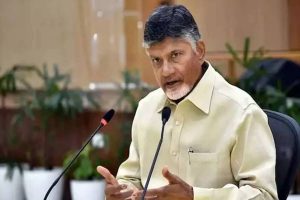Uttar Pradesh Chief Minister Yogi Adityanath emphasized that impactful work, not the duration of tenure, defines a memorable and remarkable journey in the legislature. Addressing a conference of women legislators from Uttar Pradesh and Uttarakhand here on Wednesday, he stated, “The true measure of your tenure lies in how effectively you leave a mark.”
“In Uttar Pradesh, you represent six to seven lakh people and in Uttarakhand, this responsibility extends to three and a half to four lakh people. Such an opportunity is a privilege granted to one in millions”, he added.
Advertisement
He urged legislators to utilize their platform to set an example that inspires others, adding, “Your presence in the legislature will be meaningful when you champion issues affecting the common people and address ground realities. The words spoken in the legislature become a legacy for future generations.”
Expressing gratitude to the presidents of both assemblies, CM Yogi remarked, “This is a joyous moment for me, as Uttar Pradesh is my ‘karmabhoomi’ (land of work) and Uttarakhand my janmabhoomi (birthplace).” He also praised Ritu Khanduri’s family for their remarkable contributions to the nation, noting their rich traditions of experience and heritage.
Chief Minister Yogi Adityanath highlighted that Uttar Pradesh houses the largest assembly in the country, renowned for its groundbreaking initiatives over the past two and a half years.
“The UP assembly has not only adopted innovation but has also successfully implemented the e-Vidhan system, making it paperless,” he said. He added that parliamentary democracy allows discussions on advanced technologies, paving way for firsthand experience.
The Chief Minister praised the assembly for providing experts from diverse fields a platform. “While party commitments often dominate Vidhan Sabha discussions, when advocates, engineers, doctors, scientists, and representatives from different parties come together, we rise above political boundaries to focus on societal and national progress,” he remarked.
CM Yogi also addressed the representation of women in legislative bodies, noting that in progressive countries, women’s representation is often below 10 per cent.
“In Uttarakhand, it is slightly above 10 percent, while in the UP state assembly, it stands at 14-15 percent. With the enactment of the Nari Shakti Vandan Act, this representation will further increase,” he stated.
Regarding Indian democracy, CM Yogi described it as the largest and oldest in the world, deeply rooted in the nation’s culture. “Modern democracies emerged much later globally, but India was ahead in embracing democratic values,” he said.
Regarding women’s empowerment, CM Yogi noted that when India conducted its first general elections in 1952, women were granted the right to vote alongside men.
“Countries like England extended voting rights to women much later. India has always been ahead of others in recognizing and ensuring equality,” he said, emphasizing that men and women uphold the social system, starting from the family.
Chief Minister Yogi Adityanath emphasized that no scheme can achieve remarkable success solely through government efforts, calling for active societal participation.
He highlighted the transformative initiatives under PM Narendra Modi’s leadership over the past decade: “Toilets, a symbol of women’s dignity, were constructed in every household. Over four crore families received housing, with women beneficiaries included.”
“More than 10 crore LPG connections have significantly improved women’s lives. The enactment of the Nari Shakti Vandan Act ensures that post-2029, women’s representation in elections—both Assembly and Parliament—will rise from the current 14-15 per cent to over one-third, potentially reaching 33-50%,” he said.
The Chief Minister noted the significant strides women have made in local governance. “Women constitute 56% of Block Pramukh positions and 70 per cent of District Panchayat Presidents. Their representation in Gram Pradhans and local body elections is commendable, and they are performing exceptionally well,” he stated.
However, he urged women to make informed and sensitive decisions in legislative roles, particularly regarding societal welfare schemes. “To contribute effectively in the legislature, one must closely observe social life. No aspect is inherently weak or flawed—the perspective makes the difference,” he added.
CM Yogi highlighted Uttar Pradesh’s historical importance, noting that four of the 15 women in the Constituent Assembly were from UP (then UP and Uttarakhand): Kamla Chaudhary, Sucheta Kriplani, Begum Ejaz Rasool, and Purnima Banerjee.
“These women played a pivotal role in drafting the Constitution. Just as women manage households with remarkable organization, they should lead development efforts in Gram Panchayats, local bodies, Legislative Assemblies, and Lok Sabha,” he said.
He discussed efforts to make Gram Panchayats self-reliant and explained how initiatives like Drone Didi and BC Sakhi create employment opportunities.
“Each village can provide jobs to at least five to seven people. By empowering women’s volunteer groups and creating self-reliant Gram Panchayats, we can inspire neighbouring villages to follow suit. Establishing one or two exemplary areas in each assembly constituency can set a precedent for others,” he stated.
The Chief Minister asserted that when government efforts are complemented by societal collaboration, creating ideal development models becomes achievable. “The journey begins with one example, but the impact will resonate far and wide,” he said.
UP Assembly Speaker Satish Mahana, Uttarakhand Assembly Speaker Ritu Khanduri, Cabinet Minister Baby Rani Maurya, Gulab Devi, Minister Rajni Tiwari, Pratibha Shukla, etc., were present in the program.











